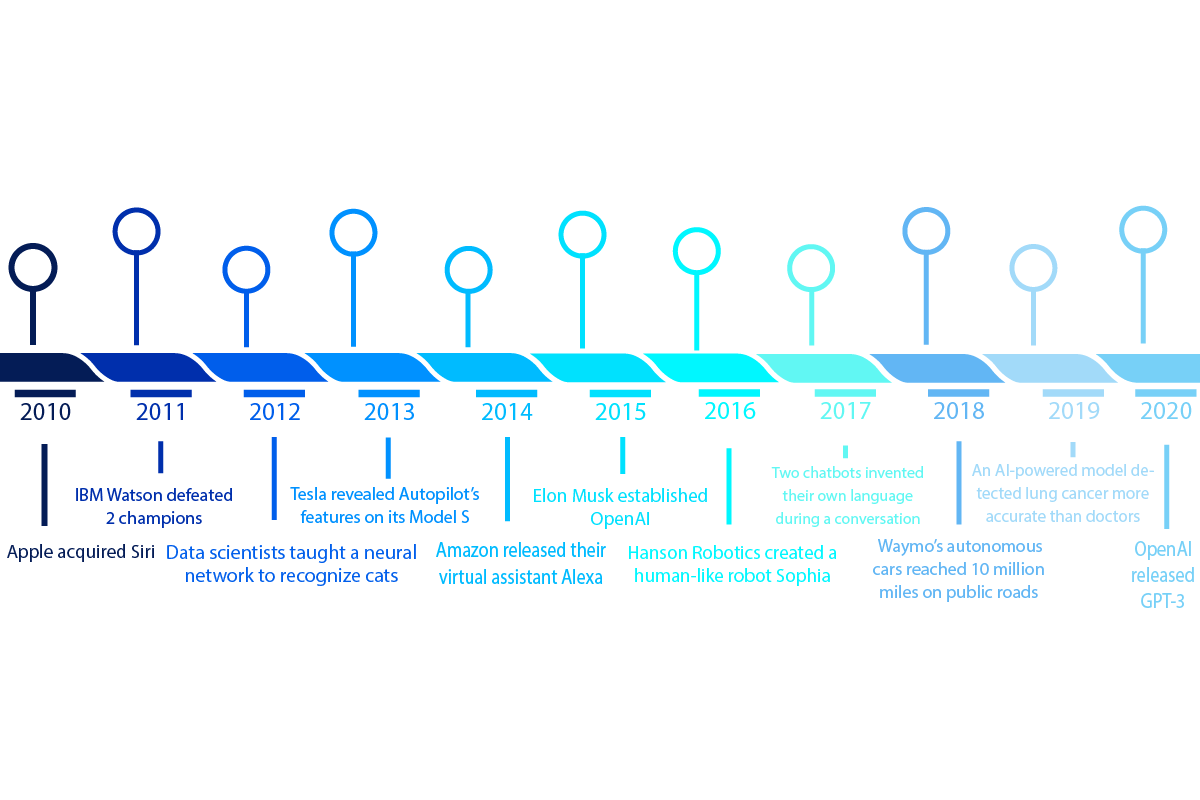Introduction to Chatbots in Business
Chatbots have quickly emerged as a compelling tool for businesses around the world. Let’s deep dive into their fascinating world and the transformation they are bringing in the business sphere.
Understanding the concept of chatbots
Chatbots are essentially AI-based software designed to interact with humans in their natural languages. These interactions usually occur through messaging applications, mobile apps, or even through websites. You might have come across these while visiting a website where a chat pop-up appears asking if you need any assistance. That’s chatbots in action — working around the clock, providing immediate response and high availability to help and improve customer engagement.
Rise of chatbots in the Business world
Chatbots are everywhere, making life easier for shoppers while reducing workload for businesses. From a mere customer service tool, chatbots have now evolved into sophisticated platforms that can handle various complex tasks – from booking a ticket to making purchase recommendations, all in a jiffy. They are gaining popularity, especially in the e-commerce, banking, and retail sectors due to their ability to provide instant service and answer customer queries promptly.
Importance of chatbots in modern business
More than just a trend, chatbots play a pivotal role in enhancing customer engagement and driving business growth. Their ability to mimic human interactions and hold engaging conversations has made them a valuable asset in contemporary business operations. They can automate tasks, offer personalized recommendations, and enhance user experience, thereby leading to higher satisfaction rates.
In the ‘always-on’ digital era, chatbots act as the bridge between businesses and their clients, ensuring flawless communication and efficient service round the clock. Undoubtedly, the amalgamation of AI in business operations through chatbots has begun a revolutionary era.
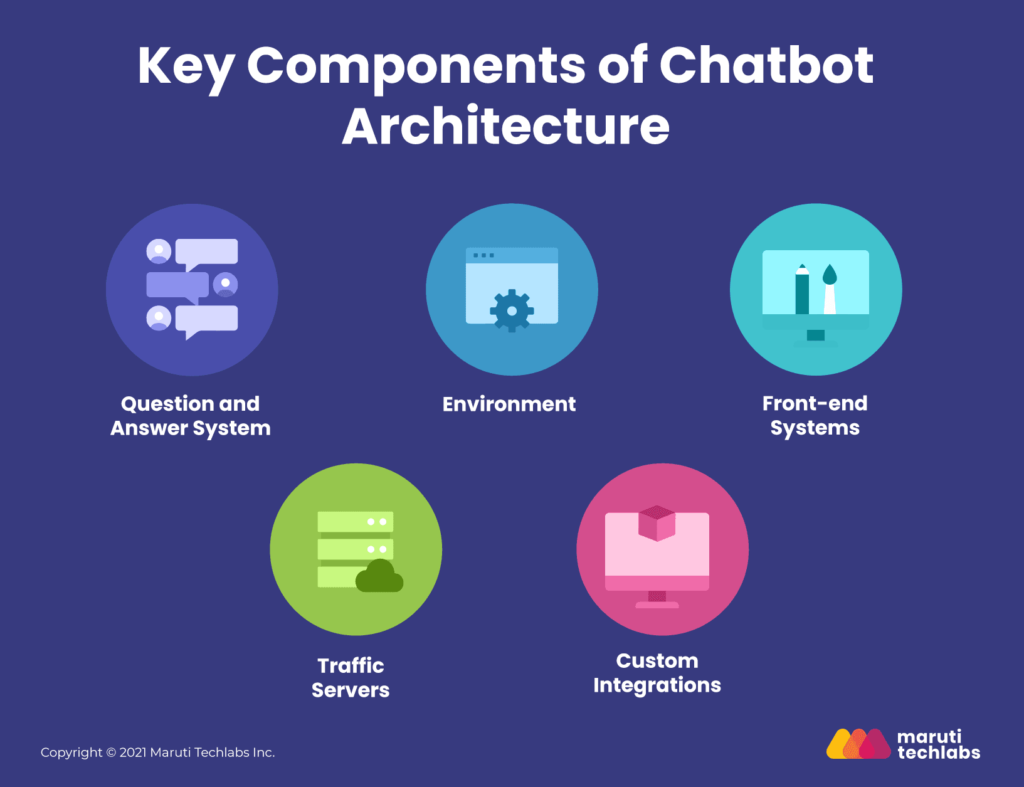
This image is property of cdn-gcp.new.marutitech.com.
Basics of Artificial Intelligence (AI)
Artificial Intelligence, commonly referred to as AI, is fundamentally changing all aspects of business and is a key driver of business expansion. From automating routine tasks to analyzing big data significantly faster than a human ever could, AI has an array of business applications.
What is AI and history of its development
At its core, AI is a branch of computer science that aims to build systems capable of performing tasks that would normally require human intelligence. This includes tasks such as understanding natural language, recognizing patterns, and making decisions.
The concept of AI dates back to the ancient Greeks, but the term was first coined by John McCarthy in 1956. Initially, AI was focused on tasks such as problem-solving and symbolic methods. Today, AI encompasses machine learning, where computers learn from experience and make decisions based on what they’ve learnt.
Various components of AI
AI is composed of several different branches, two of the most prominent being machine learning and natural language processing. Machine learning is a subset of AI that grants computers the ability to learn from data without being programmed. Natural language processing, on the other hand, allows computers to understand, interpret, and mimic human language.
Relevance of AI in contemporary times
Slowly but surely, AI is becoming an essential part of our daily lives and businesses. It unlocks the potential to automate mundane tasks, analyze enormous amounts of data swiftly, and improve customer experience. Specifically, in the context of business expansion, AI-powered chatbots are creating a revolution. They act as personal assistants, managing customer inquiries and even guiding through sales, thereby helping businesses scale new heights.
As AI technology continues to evolve, its applications and influence within the business realm will invariably continue to expand. Harnessing the power of AI will become increasingly vital for businesses wishing to stay competitive in a rapidly changing marketplace.
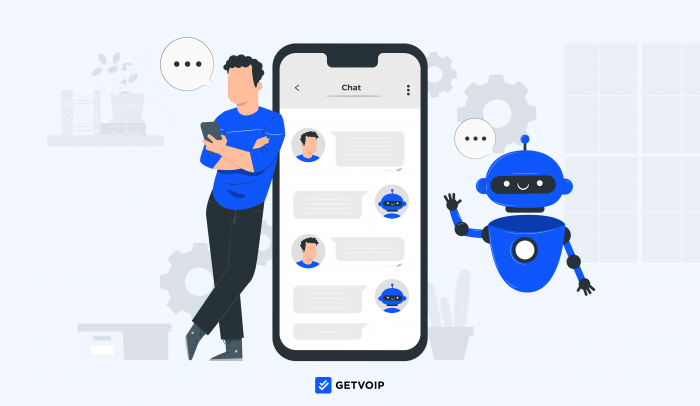
This image is property of getvoip.com.
AI: The Engine behind Chatbots
Artificial Intelligence (AI) has reinvented customer service by making chatbots smarter, in an attempt to improve customer experience. Its role in revolutionizing businesses cannot be overstated as it has not only enhanced customer interaction but also driven business expansion.
Role of AI in the Functioning of Chatbots
AI plays an indispensable role in the functioning of chatbots by helping them understand and interpret human language. These chatbots, powered by AI, are intuitive and can handle queries beyond their programmed capabilities. The brilliant AI technology embedded in these chatbots enables them to process vast amounts of data, and learn from every interaction, thus enriching their knowledge with each conversation.
Different AI Technologies Used in Chatbots
Chatbots leverage various AI technologies to enhance their operations. Natural Language Processing (NLP) allows chatbots to understand text inputs, while Machine Learning enables them to learn from past interactions and streamline future conversations. Deep Learning algorithms, on the other hand, help chatbots to recognize speech and handle more complex queries. Also, Neural Networks are used to enhance the ability of chatbots to understand and respond to human emotions better.
Impact of AI on Chatbot Capabilities
AI’s integration into chatbots has had a profound impact, leading to more efficient and dynamic interactions. These AI-powered chatbots can accurately understand complex queries and respond with in-depth answers. They can even identify the difference between serious issues and casual conversations, allowing them to effectively prioritize and manage customer queries. What’s more exciting is that, by using AI, chatbots can even upsell and cross-sell products by making relevant suggestions based on customer preferences.
This use of AI power not only builds customer trust but also achieves a level of customer satisfaction that traditional customer service channels could never achieve. Consequently, AI-powered chatbots have become a mainstay in driving business growth and expansion.
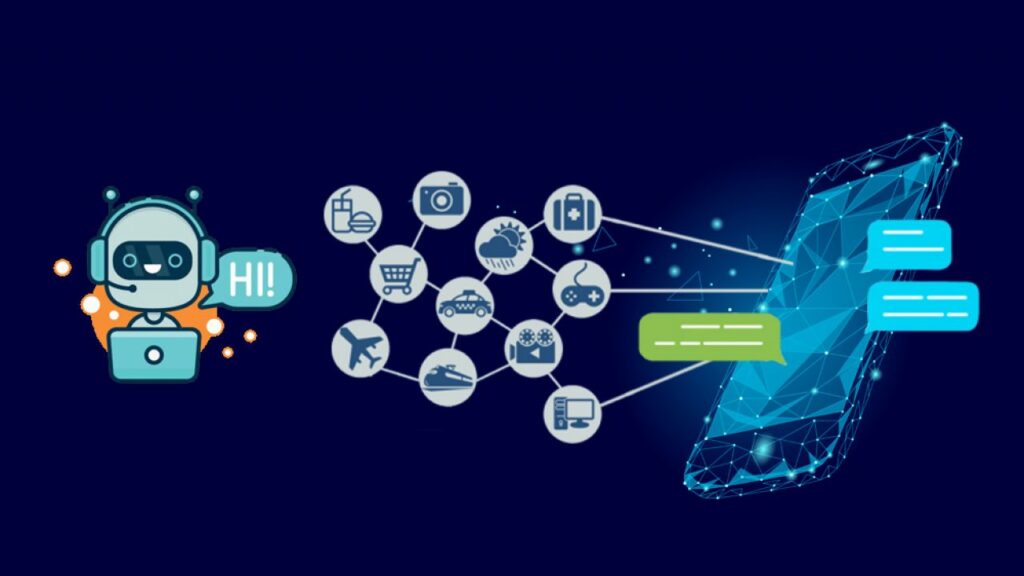
This image is property of www.einfochips.com.
Monetizing AI in Online Business
Interactive technology is gradually taking over the business world. A pivotal example of this takeover is the use of artificial intelligence (AI) in online commerce. The integration of AI into e-commerce plays a crucial role in streamlining business operations and opening up new avenues for profitability.
Integration of AI and Ecommerce
This new era of technological novelty brings about a paradigm shift that involves reinventing traditional business operations. For many businesses, AI has come in handy to gain a competitive edge. Coupling AI and e-commerce enable business owners to predict buyer behavior, personalize suggestions, automate routine tasks, and experiment with multiple strategies for business expansion at almost no extra cost.
Opportunities of Earning through AI in Online Business
AI opens up a myriad of opportunities for online businesses to increase revenue. It provides personalized and predictive marketing campaigns. With this technology, businesses can predict what a customer might need, offer personalized suggestions and thus, increase sales. Not only does AI help in gaining customers, but it also provides insights about retention and loyalty programs, hence fostering long-term relationships.
Examples of Successful Monetization of AI in Business
Globally, many success stories have been penned by businesses that decided to incorporate AI into their operations. Amazon, for example, uses AI for product suggestions based on the browsing history, purchasing patterns, and demographics of its customers. This AI-driven personalized marketing strategy has worked wonders for the e-commerce giant. Similarly, Netflix suggests movies or shows based on your viewing patterns, and Spotify uses AI to recommend songs that align with your musical taste. These examples are clear indicators of how AI implementation has helped businesses grow by leaps and bounds.
A holistic understanding of the value that AI can bring to your business is the key to unlocking its full potential. Treading on the less-trodden path of technological advancement can give businesses a lead in the race to the pinnacle. In short, AI is the way to go for businesses that aim at a tech-driven, environmentally friendly, and economically viable future.
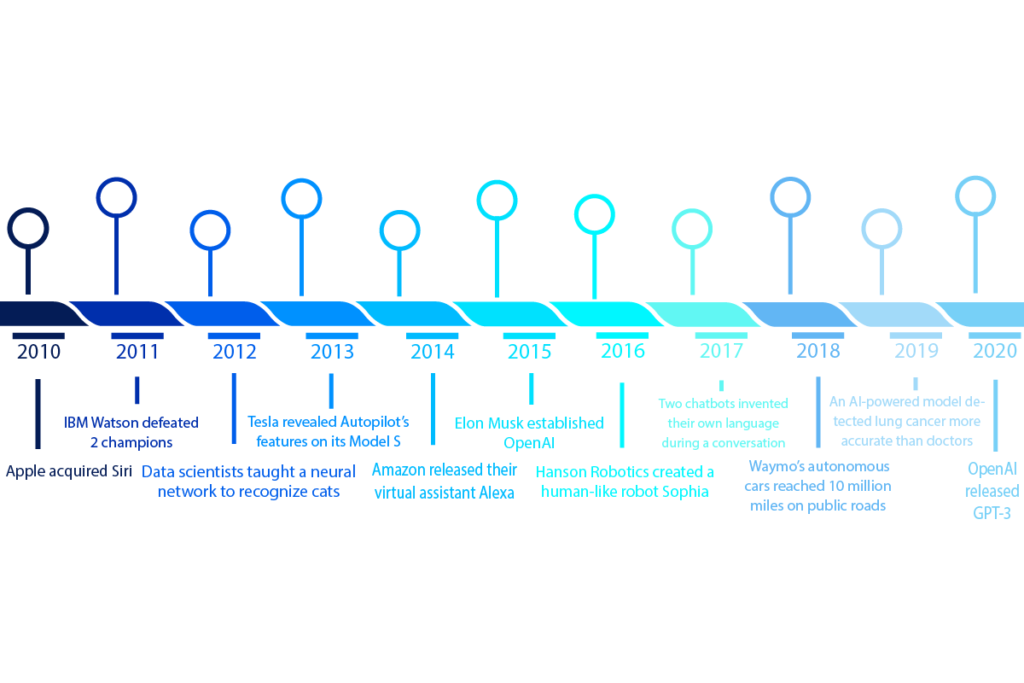
This image is property of litslink.com.
Chatbots and Customer Relationship Management
Chatbots are evolving to become an essential part of any business’s Customer Relationship Management (CRM) strategy. By leveraging Artificial Intelligence (AI) technologies, chatbots are gaining traction in handling customer queries, functioning in the CRM sphere, and offering benefits when integrated into CRM systems.
Importance of Chatbots in Handling Customer Queries
I am convinced that chatbots play a crucial role in managing customer queries in a timely and efficient manner. For instance, they have the capability to respond instantly to customer’s questions or complaints, without keeping them on hold, resulting in customer satisfaction and loyalty. With AI’s ability to analyze and interpret customer data, chatbots can also provide personalized responses making the customer feel valued, hence increasing engagement rates.
Functioning of Chatbots in CRM
In the realm of CRM, chatbots function as a virtual assistant, driving effective communication with the customers around the clock. They can quickly provide customers with the information they need, significantly improving the customer’s experience with the business. Additionally, chatbots can also gather and analyze feedback from customers, offering valuable insights into what the customers are looking for and how the business can improve.
Benefits of Integrating Chatbots in CRM Systems
Integrating chatbots into CRM systems brings a plethora of benefits to a business. The most noteworthy is that it can significantly reduce operational costs since chatbots can carry out tasks typically done by a human workforce. It also leads to increased efficiency as chatbots can handle multiple customer interactions simultaneously, thus improving the business’s response time. Moreover, with AI analytics, businesses can track and analyze every chatbot interaction, thereby gaining valuable customer insights for further business expansion.
So, beyond any doubt, the integration of AI and particularly chatbots, can supercharge the business expansion endeavor. They enhance the customer relationship management process, making it more effective and efficient while offering valuable insights for sustained business growth.

This image is property of erepublic.brightspotcdn.com.
AI for Business Growth: A Closer Look
As someone constantly immersed in the technological realm, I’ve observed how artificial intelligence (AI) has moved beyond just chatbots to drive business expansion. When wisely implemented, AI can infuse fresh energy into a business structure and overcome its operational limitations.
How AI drives business expansion
AI is no longer just about efficiency. Today, it plays a key role in providing invaluable insights into customer behavior and market trends. AI-powered analytics can identify patterns and make accurate predictions, allowing businesses to be proactive and seize opportunities faster than their competitors. It’s not just about reaction anymore – it’s about anticipation. AI paves the way for informed decision-making, offering an edge that businesses can ill afford to overlook in today’s fast-paced world.
AI and predictive analytics for business growth
With AI, predictive analytics is no longer a distant dream. Through its ability to process huge volumes of data, AI can predict future market trends and customer behavior with a precision unheard of a few years ago. It gives businesses a crystal ball, enabling them to strategize effectively and plan their expansion goals more accurately.
Case Studies showcasing use of AI for business expansion
In the real world, numerous companies have successfully harnessed the power of AI for business expansion. Take Uber as an example. This ride-sharing giant uses AI to optimize routes and estimate arrival times, creating an efficient service that raises its commercial appeal. Similarly, Amazon uses AI to personalize the shopping experience for each user based on their browsing and purchasing history – a key factor in their continued business expansion.
Thus, AI is an indisputable game-changer in the business scene. From predictive analytics to consumer insights, the applications of AI are vast and transformative, enabling firms to scale up operations and set new horizons for growth.
Challenges in Deploying AI and Chatbots
As we continue to embrace the idea of Artificial Intelligence (AI) as part of our business model, it’s clear that there are some challenges that need to be addressed. These challenges range from technical integration issues, customer satisfaction concerns, and data privacy and security matters.
Technical issues faced while integrating AI and chatbots
Integrating AI and chatbots into any existing system can be a daunting task. As I found out, there’s no one-size-fits-all solution to this. Each business will have a unique architecture that may require different implementation strategies and plenty of trial and error. It involves an array of tasks like coding, database interfacing, designing the user interface – and let me tell you, there’s always some unexpected troubleshooting along the way!
Resolving customer satisfaction concerns in AI and chatbots
The next major hurdle is resolving the concerns of customer satisfaction. It’s not enough to have a functional AI – it needs to meet or exceed the level of customer service provided by humans. An AI chatbot must effectively understand and respond to users’ needs, providing relevant, accurate, and timely information. But strikes a balance between automation and personalization can really be tricky!
Importance of data privacy and security in AI and chatbots
Lastly, but just as significantly, there’s the matter of data privacy and security. The information processed by AI and chatbots is often sensitive – including personal details and preferences of your customers. The chatbot must ensure top-notch security features to prevent any data breaches. At the same time, it should be complaint with various data protection regulations.
While these hurdles may seem daunting, they are not insurmountable. With careful planning, diligent testing, and a robust development approach, AI and chatbots can become effective tools in accelerating business growth. Although these challenges add an extra layer of complexity to AI adoption, the potential benefits make them worth overcoming.
Future Prospects of AI and Chatbots in Business
Innovative technological advancements, such as artificial intelligence (AI) and chatbots, are revolutionizing how businesses operate and grow. Notwithstanding, their potential impact on businesses’ future seems even more significant.
Innovative trends in the application of AI and chatbots
AI and chatbots are witnessing enhanced applications across board. From enhancing customer service experiences to promoting targeted marketing, the areas of application are vast. Particularly, chatbots powered by AI are becoming increasingly smart, capable of learning from past interactions and refining their responses over time. This type of machine learning is quite game-changing, making these bots a business asset that continually increases in value.
Potential growth sectors for AI and chatbots
The growth sectors for AI and chatbots look promising. AI is making inroads into manufacturing and logistics, revolutionizing process automation, prediction systems and supply chain management. The healthcare sector is another where AI, coupled with big data, is effecting monumental changes in patient care, diagnostics, and preventive medicine. Similarly, chatbots are transforming sectors like banking and e-commerce, providing around-the-clock customer support and driving up engagement rates.
Predictions for the future of AI and chatbots in business
The future of AI and chatbots in business appears dazzling. A stage where virtually every business process is boosted by AI to increase productivity and profit margins does not seem far-off. Chatbots, on the other hand, might totally replace the traditional structures of customer service, providing instant, intelligent support to consumers. This future will mean broader horizons for businesses, with AI enabling quick and efficient expansions and chatbots fueling better customer relationships, higher retention rates, and consequently, larger customer bases.
It is fair to say that the future of business expansion will invariably be tied to AI and chatbots, and as we move further into the digital age, these technologies will continue to evolve, redefine, and expand business operations.
AI and Sustainable Business Models
The world of business is constantly evolving and with the integration of Artificial Intelligence (AI), we are observing a profound shift towards sustainable and scalable business models.
Rethinking business strategies with AI
AI is not just another buzzword; it is a key catalyst for restructuring and redefining our traditional business strategies. From AI-powered customer service chatbots to advanced predictive analytics, AI tools have shown tremendous potential to improve business operations, enhance customer satisfaction, and yield significant cost savings. For instance, chatbots can answer customer queries promptly, providing a seamless experience. With AI, businesses can leverage machine learning algorithms to predict future trends and patterns, making proactive and informed decisions.
Sustainability enabled through the application of AI and chatbots
Embracing AI and chatbots doesn’t just streamline business processes, but also aids in fostering sustainability. With AI, repetitive and mundane tasks can be automated, reducing the workload on human employees and allowing them to focus on more strategic tasks. This is not just a process improvement technique, but a strategic move towards long-term sustainability. Chatbots, to mention, can serve customers 24/7, reducing human intervention and thus, making the business process efficient and sustainable.
Impact of AI and chatbots on business sustainability
The impact of AI on business sustainability is profound. By minimizing errors, increasing efficiency, and reducing operational costs, AI drives business sustainability. For example, the use of AI chatbots has considerably reduced the requirement and costs of human customer support, resulting in more sustainable operations.
As we progressively venture deeper into the digital era, the integration of artificial intelligence in our business strategies will only amplify. And as AI continues to evolve, so will the prospects of sustainable and efficient business models!
Guidelines for Implementing AI and Chatbots in Business
It’s no secret that the digital landscape evolves at a rapid pace. One of the most exciting, and transformative, developments is the application of artificial intelligence (AI) in businesses. AI technology, particularly with the use of chatbots, has completely revolutionized customer-facing roles and beyond. But how do we go about effectively integrating these technologies into our businesses?
Considerations while integrating AI and chatbots
Before diving into implementation, it’s crucial we undertake due diligence. Start by getting clear on your business needs. What problems are you looking to solve with AI and chatbots? Once you’ve identified the needs, you can then choose the right AI tools tailored for your business. The objective is to ensure the technology aligns with your business goals and doesn’t hamper the user experience.
Best practices for implementing AI and chatbots
Next, it’s time to roll out the technology. But it’s not just about slapping a chatbot on a webpage. It’s vital we strategically shape the customer’s interaction with the bot. This requires planning and customization, ensuring that the chatbot is intuitive, user-friendly, and accurate in its responses. AI should never replace human interaction; instead, it should augment it.
Tips for successful deployment of AI and chatbots
If the planning and execution phases are done right, all that’s left is a successful deployment. In this stage, thorough testing is paramount. This helps ensure the AI and chatbot performs correctly and efficiently. Remember, the key to a successful deployment is iterative improvement, so regularly seek feedback and make improvements.
AI and chatbots are not just tech buzzwords; they represent the future of how businesses will engage and interact with customers. As with any business strategy, it’s important to carefully plan, execute, and continually refine our approach to ensure that we are optimizing these powerful tools for the best possible outcomes.
And remember, Rome wasn’t built in a day, and neither will your AI strategy be!
Case Studies of Successful Implementation of AI in Business
Today, we delve into how businesses across various sectors have successfully brought AI into play, expanding their horizons not just in terms of technology, but also in revenue generation, customer servicing, and market presence. With AI being more than just a buzzword, it is intriguing to understand how businesses have actually capitalized on this technology.
Understanding Success Strategies Through Real-World Examples
While AI can be integrated into any facet of a business, our focus here is its implementation via chatbots and the resultant impact. In the eCommerce industry, for instance, chatbots powered by AI have significantly improved customer interaction by offering real-time support, personalized recommendations, and simplified ordering process, leading to enhanced customer experience and increased sales.
In the software development industry, companies are employing AI chatbots for the codification of the development process, thereby improving the speed and accuracy of coding, and alleviating the burden of repetitive tasks from developers.
Lessons Learned from Successful AI Implementations
A key lesson from these successful AI implementations is that any AI investment should be in alignment with the business strategy. For a chatbot to fulfill its role, it needs a well-defined purpose, be it customer support, improving productivity, or data collection.
Another takeaway is the importance of constant improvement and adjustments in the AI model. Successful businesses treat AI as an ongoing project and continuously update it based on user feedback and advancements in technology.
Impact of Successful AI and Chatbot Application on Business Outcomes
AI and chatbots have been game-changers in terms of cost savings, productivity, customer engagement, and data-driven decisions. Businesses that have capitalized on AI capabilities have seen a significant improvement in profitability, customer satisfaction, and market share, defining a new paradigm of success.
Now that we have seen how AI can revolutionize business, the question isn’t whether to implement AI, but how best to do it.
Conclusion: AI and Chatbots in Business
The transformative power of AI and chatbots in businesses cannot be overstated. They have traveled a long journey from an afterthought experimentation to a necessity now.
Summarizing the Impact of AI and Chatbots
AI and chatbots have reshaped traditional business operations. Whether it’s improving customer service, personalizing marketing tactics, or streamlining processes, AI has proven indispensable. To illustrate, chatbots work round the clock, addressing customer inquiries promptly and efficiently. They have replaced human assistance in many areas reducing costs while increasing productivity.
Moreover, AI aids in gaining insightful customer data. It helps businesses to understand their customers better, hence advancing the strategies and decisions for more growth.
Reflection on the Evolution and Future of AI and Chatbots in Business
It’s thrilling to see how far AI and chatbots have come. They started as simple rule-based bots but now, thanks to machine learning and natural language processing, they can understand and simulate human conversations. Moving forward, we will witness even more evolution as AI moves towards predictive abilities, anticipating customer needs, and taking autonomous actions to fulfill them.
Remember, AI and chatbots aren’t exclusively for multinationals. Businesses of all sizes can harness their potential to boost their growth and stay ahead in the competitive landscape.
Final Thoughts on the Role of AI in Business Expansion
The role of AI and chatbots in business expansion is not just limited to improvement in operations and customer servicing. It extends far beyond – catalyzing innovation, creating new avenues for income, and enabling businesses to reach unprecedented heights. Thus, any business looking to grow and expand, must look at AI and chatbots as vital components of their strategic planning. The future of business indeed seems to be automated, and it’s a future that’s already here.
